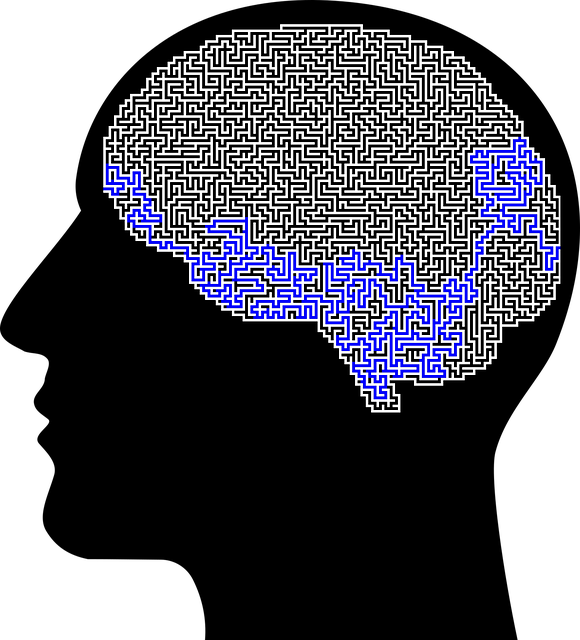Broomfield ADD-ADHD evaluations are comprehensive, integrating behavioral observations, interviews, and standardized assessments to understand Attention Deficit Hyperactivity Disorder. These evaluations guide tailored therapy plans by identifying symptoms, environmental factors, and co-occurring conditions, utilizing a holistic Harm Minimization Planning approach. This method empowers clients with self-management tools like positive thinking, journaling, and emotional well-being promotion techniques, fostering better outcomes in personal and professional life. Evidence-based strategies and community outreach programs play crucial roles in safe, effective Broomfield ADD-ADHD evaluations therapy, promoting long-term wellness and proactive self-care practices.
In Broomfield, ADD-ADHD evaluations are a crucial step towards personalized therapy planning. This article delves into the essential practices of risk assessment and harm minimization, key components for successful therapeutic outcomes. We explore how a comprehensive approach, incorporating evidence-based strategies, can ensure safe and effective treatment for individuals navigating ADD-ADHD. By understanding risk factors and implementing proactive harm minimization plans, Broomfield therapy practices can foster positive transformations in their clients’ lives.
- Understanding Risk Assessment in Broomfield ADD-ADHD Evaluations
- Harm Minimization Planning: A Comprehensive Approach for Therapy Success
- Implementing Evidence-Based Strategies for Safe and Effective Treatment
Understanding Risk Assessment in Broomfield ADD-ADHD Evaluations

In Broomfield, ADD-ADHD evaluations are crucial steps in understanding and managing Attention Deficit Hyperactivity Disorder. Risk assessment plays a pivotal role in this process, ensuring that therapy and treatment plans are tailored to each individual’s unique needs. By thoroughly evaluating various factors such as symptoms, environmental influences, and co-occurring conditions, professionals can identify potential risks and harms associated with the disorder. This comprehensive understanding is essential for developing effective strategies aimed at minimizing these risks.
Broomfield ADD-ADHD evaluations go beyond simple diagnosis; they involve a multi-faceted approach that includes behavioral observations, interviews, and standardized assessments. This holistic method allows therapists to not only pinpoint challenges but also to explore resources and strengths. As public awareness campaigns on mental health issues gain traction, the importance of these evaluations becomes increasingly evident. They serve as the foundation for implementing confidence-boosting strategies and empathy-building techniques, which are vital in supporting individuals with ADD/ADHD throughout their therapy journeys.
Harm Minimization Planning: A Comprehensive Approach for Therapy Success

Harm Minimization Planning is a comprehensive approach that integrates various strategies to enhance therapy success for individuals with Attention Deficit Disorder (ADD) or Attention Deficit Hyperactivity Disorder (ADHD). This method goes beyond traditional evaluation by focusing on not only identifying challenges but also empowering clients with tools and techniques to manage and overcome them. By incorporating methods such as positive thinking, mental wellness journaling exercises, and emotional well-being promotion techniques into the therapy process, Broomfield ADD-ADHD evaluations therapy becomes a holistic journey towards improved quality of life.
This strategic planning involves setting realistic goals, creating structured routines, and providing clear guidance tailored to each individual’s unique needs. It encourages clients to actively participate in their healing process, fostering self-awareness and resilience. Through this approach, individuals with ADD/ADHD can develop effective coping mechanisms, enhance their ability to focus, and improve overall emotional regulation, ultimately leading to better outcomes in both personal and professional spheres.
Implementing Evidence-Based Strategies for Safe and Effective Treatment

Implementing evidence-based strategies is paramount when it comes to safe and effective treatment for Broomfield ADD-ADHD evaluations and therapy. By adopting approaches backed by robust research, healthcare professionals can tailor interventions that not only manage symptoms but also promote long-term wellness. This includes incorporating self-care routine development as a cornerstone of care, empowering individuals with tools to maintain better mental health between sessions. Such strategies foster resilience and enhance the overall effectiveness of treatment plans.
Furthermore, community outreach program implementation plays a crucial role in harm minimization by providing additional support structures. These programs can connect individuals struggling with ADD-ADHD to resources, education, and peer support networks, fostering a sense of belonging and encouraging proactive self-care practices. This holistic approach ensures that the treatment process extends beyond individual therapy, creating a safer and more supportive environment for those seeking help in Broomfield.
In conclusion, effective risk assessment and harm minimization planning are pivotal for successful Broomfield ADD-ADHD Evaluation therapy. By understanding the unique risks associated with this process, therapists can implement evidence-based strategies to ensure safe and effective treatment. This comprehensive approach not only minimizes potential harms but also optimizes outcomes for individuals navigating the challenges of ADD-ADHD in a bustling therapeutic environment.














